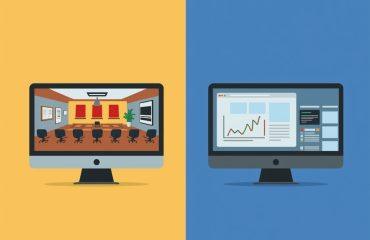advertising
How to Prepare for Behavioral Interviews: Techniques and Practical Examples
What Are Behavioral Interviews and Why Do They Matter?
Behavioral interviews are a selection method that seeks to understand how you have acted in past situations in order to predict your future performance. They assume that previous behavior is a good indicator of future actions. Instead of hypothetical questions like "What would you do if...", recruiters prefer questions like "Tell me about a time you dealt with conflict at work".
Why is this format so popular? Companies like Google, Amazon and Coca-Cola use this approach because it reduces subjectivity. A candidate may say that they are great at solving problems, but a concrete example proves it. In addition, this method helps to identify skills such as teamwork, leadership and resilience, which are difficult to assess in technical tests.
advertising
Imagine you're applying for a job that requires proactivity. If you just said "I'm proactive", the recruiter might doubt it. Now, if you tell them how you identified a problem in your team's workflow and proposed a solution that increased productivity by 20%, that makes all the difference. Concrete data and real stories are irresistible to those who are hiring.
Want to know how to stand out in this type of interview? Read on, because we're going to explore everything from the structure of your answers to techniques for training your communication skills.
The STAR Framework: The foolproof method for behavioral responses
One of the most effective techniques for answering behavioral questions is the STAR method. Situation, Task, Action and Result. This structure helps to organize your reasoning and ensure that your answer is clear and impactful. Let's unravel each part with practical examples.
Situation: Here, you put the scenario into context. For example: "In my last company, there was a constant delay in deliveries due to a lack of alignment between departments." Avoid unnecessary details - focus on what is relevant to the question.
Task: Describe what your responsibility was in that situation. "My job was to coordinate the logistics team and ensure that deadlines were met." This shows the interviewer your role and level of involvement.
Action: This is where the "how" comes in. "I brought together the leaders of each sector to map the bottlenecks, we implemented a real-time monitoring system and trained the team to use the new tool." Be specific - mention tools, strategies and even numbers, if possible.
Results: Finish with the impact generated. "In three months, we've reduced delays by 40% and improved customer satisfaction, according to internal surveys." Quantifiable results attract attention and give credibility to your story.
Practice this method before the interview. Take common questions like "Tell me about a time when you overcame an obstacle" and structure answers using STAR. You can practice with a colleague or record yourself to assess your clarity.
How to Identify Key Competencies and Prepare Relevant Stories
Even before the interview, it's crucial to understand what skills the company values. Each position requires different skillsand your goal is to align your experiences with these demands. How do you find out? Read the job description carefully and research the company culture.
For example, if the vacancy is for a leadership position, expect questions about team management, decision-making and conflict resolution. For a customer service position, focus on stories that demonstrate empathy, patience and negotiation skills. There's no point in telling a great story if it's not relevant to the job.
A useful exercise is to list 5-7 key competencies for the job and, for each one, prepare at least one example. Let's say "teamwork" is one of them. Think of a situation in which you collaborated with colleagues to achieve a goal. Perhaps it was a group project in college or a volunteer initiative. Details such as "how you dealt with differing opinions" enrich your answer.
What if you don't have any professional experience? Use academic, extracurricular or even personal examples. The important thing is to show that you have the skill, regardless of the context. Have you ever led a study group? Resolved a conflict between friends? It all counts!
To find out more, take a look at sample job descriptions on sites such as LinkedIn or Glassdoor. They usually highlight the skills most sought after by companies.
Common Behavioral Interview Questions and How to Answer Them
Some questions are classic in behavioral interviews, and knowing them in advance increases your confidence. Let's take a look at the most common ones and how to approach them without falling into generic answers.
"Tell me about a time when you failed. What did you learn?" Here, the recruiter wants to see your capacity for self-criticism and resilience. Avoid answers like 'I've never failed' or blaming others. Instead, choose a real failure, but one that doesn't compromise your image. Example: "I once underestimated the deadline for a project and we delivered it late. I've learned to always allow for unforeseen circumstances and to communicate risks in advance."
"Describe a situation in which you had to deal with a difficult colleague." This question assesses your emotional intelligence. Don't badmouth your colleague - focus on how you solved the problem. "I worked with someone who was resistant to change. I arranged a private conversation, listened to their concerns and together we found a compromise that worked for the team."
"How do you deal with pressure and tight deadlines?" Here, stories with metrics are powerful. "In my last job, we had to deliver a project in half the time. I prioritized tasks, delegated duties and kept the team motivated with daily check-ins. We managed to deliver without sacrificing quality."

Also prepare answers to:
- "Give an example of when you innovated."
- "How do you deal with negative feedback?"
- "Tell me about a challenging goal you've achieved."
The more examples you have ready, the less chance of being caught off guard.
How to Train and Improve Your Performance Before the Interview
Knowing the theory is important, but practice makes the difference. Practicing your answers out loud helps you identify weaknesses and gain fluency. How to do this efficiently?
First, record yourself answering the questions. When listening to the recording, pay attention to vices of language ("like", "right"), repetitions and lack of clarity. You can also ask a friend or mentor for feedback. Sometimes what makes sense in your head isn't so clear to others.
Another valuable tip is simulate the interview with someone you trust. Ask this person to be strict, interrupt you and ask follow-up questions. This prepares you for the dynamism of a real interview, where the recruiter can delve into certain points.
If you prefer to train alone, use the mirror. Watch your body language - Nervous gestures, lack of eye contact or a closed posture can convey insecurity. Remember: non-verbal communication represents more than 50% of the message.
Finally, study the company. Knowing their values, recent projects and even the names of the leaders shows genuine interest. Sites like Coca-Cola Brazil and Amazon Careers usually have sections on organizational culture.
What to do during an interview: Tips for Staying Calm and Convincing
The big day has arrived. Nervousness is normal, but it mustn't hinder your performance. How do you keep calm and convey confidence?
Start by controlling anxiety with breathing techniques. Before entering the room, inhale deeply for 4 seconds, hold for 4 and exhale for 6. This reduces your heart rate and calms your mind. During the interview, if you feel like you're racing, ask for a moment to think before you answer. A short pause is better than a disconnected answer.
Keep your tone clear and moderate. Speaking too quietly is insecure; speaking too loudly is aggressive. Adapt to the interviewer's pace - if they're more formal, avoid slang; if they're relaxed, you can be a bit more natural.
Another crucial point: listen actively. Don't get so focused on what you're going to say next that you miss parts of the question. If necessary, ask to repeat: "Do you want me to focus more on the process or the result?" This demonstrates attentiveness and ensures that you answer what was asked.
Finally, end with intelligent questions. Instead of "What are the benefits?", ask: "How would you describe the team culture here?" or "What are the biggest challenges someone in this position would face?" This shows strategic vision.
Common Mistakes and How to Avoid Them
Even prepared candidates can make mistakes that jeopardize their chances. Knowing these mistakes will help you avoid them.
One of the biggest sins is answer with generalities. Phrases like "I'm a good team player" or "I always do my best" are not convincing. Replace with concrete examples. Instead of "I deal well with difficult clients", say: "Once, a client threatened to cancel the contract because he didn't like the prototype. I invited him to a meeting, presented adjustments based on his feedback and today he's one of our biggest advocates."
Another mistake is bad-mouthing previous employers. Even if your departure has been turbulent, remain professional. Criticizing the company or colleagues gives the impression that you could do the same in the future.
Lack of preparation for follow-up questions is also dangerous. The interviewer may ask for more details such as "How exactly did you convince the team?" or "What was the feedback from your manager?" If your story is invented or poorly crafted, it will be obvious.
Finally, not researching the company. Imagine saying that you admire the company's innovation, but not knowing its latest launch. This shows a lack of interest. Take the time to read the news, visit the official website and understand the organization's values.
Ready for your next behavioral interview? With preparation and practice, you'll stand out. How about starting to put together your stories in STAR format today?
This article offers a complete guide, but remember: every interview is a learning opportunity. Even if you're not selected, reflect on the feedback and refine your techniques. Good luck!



